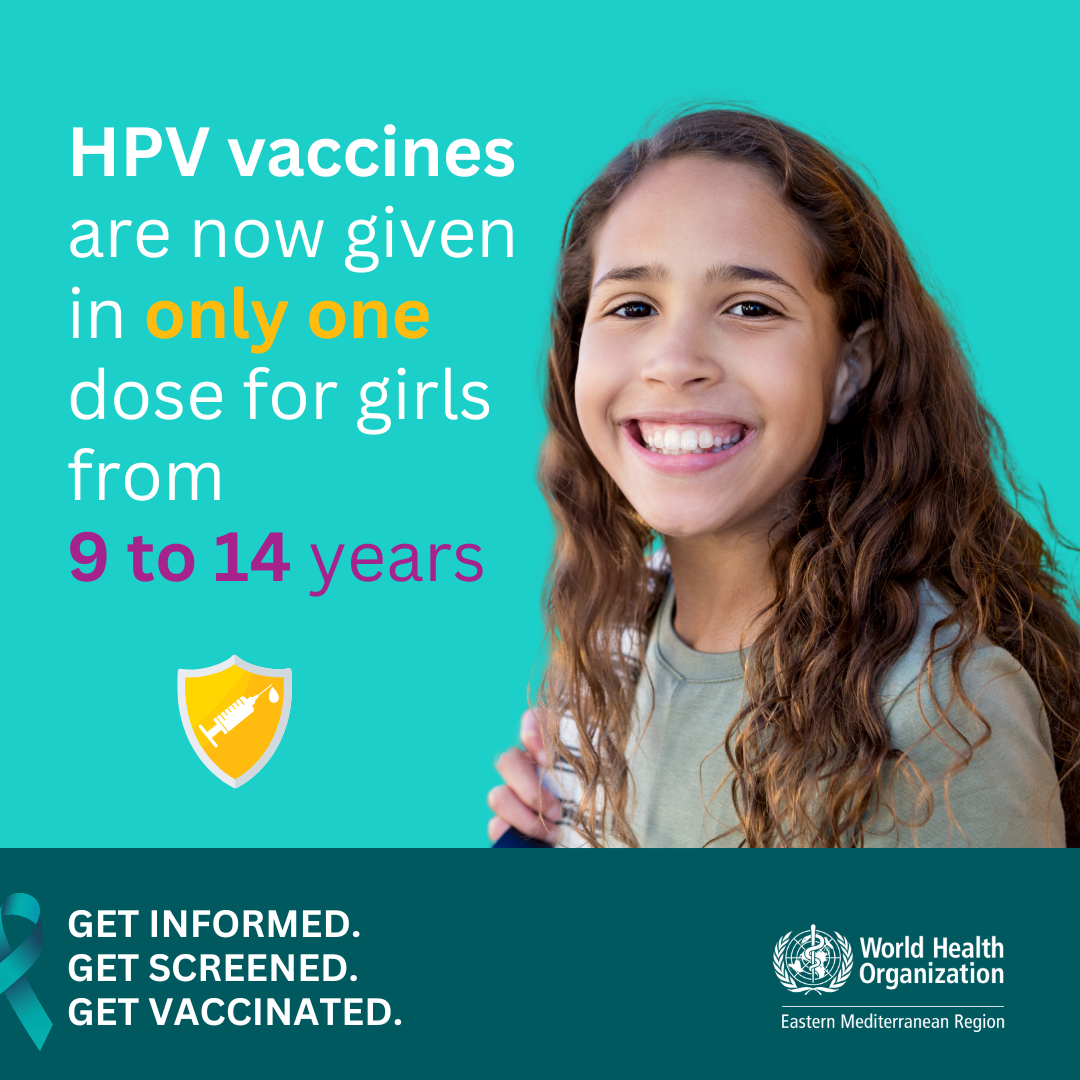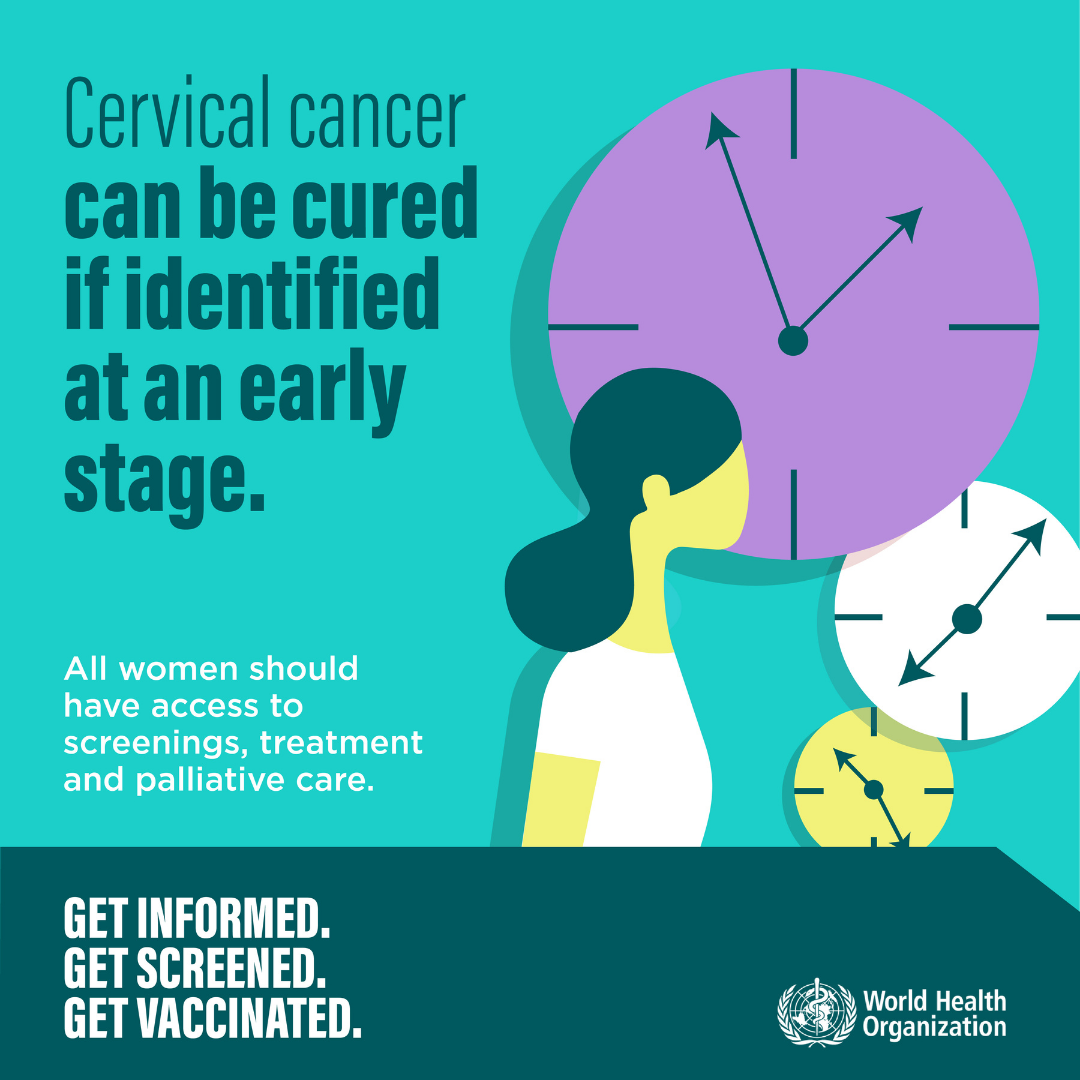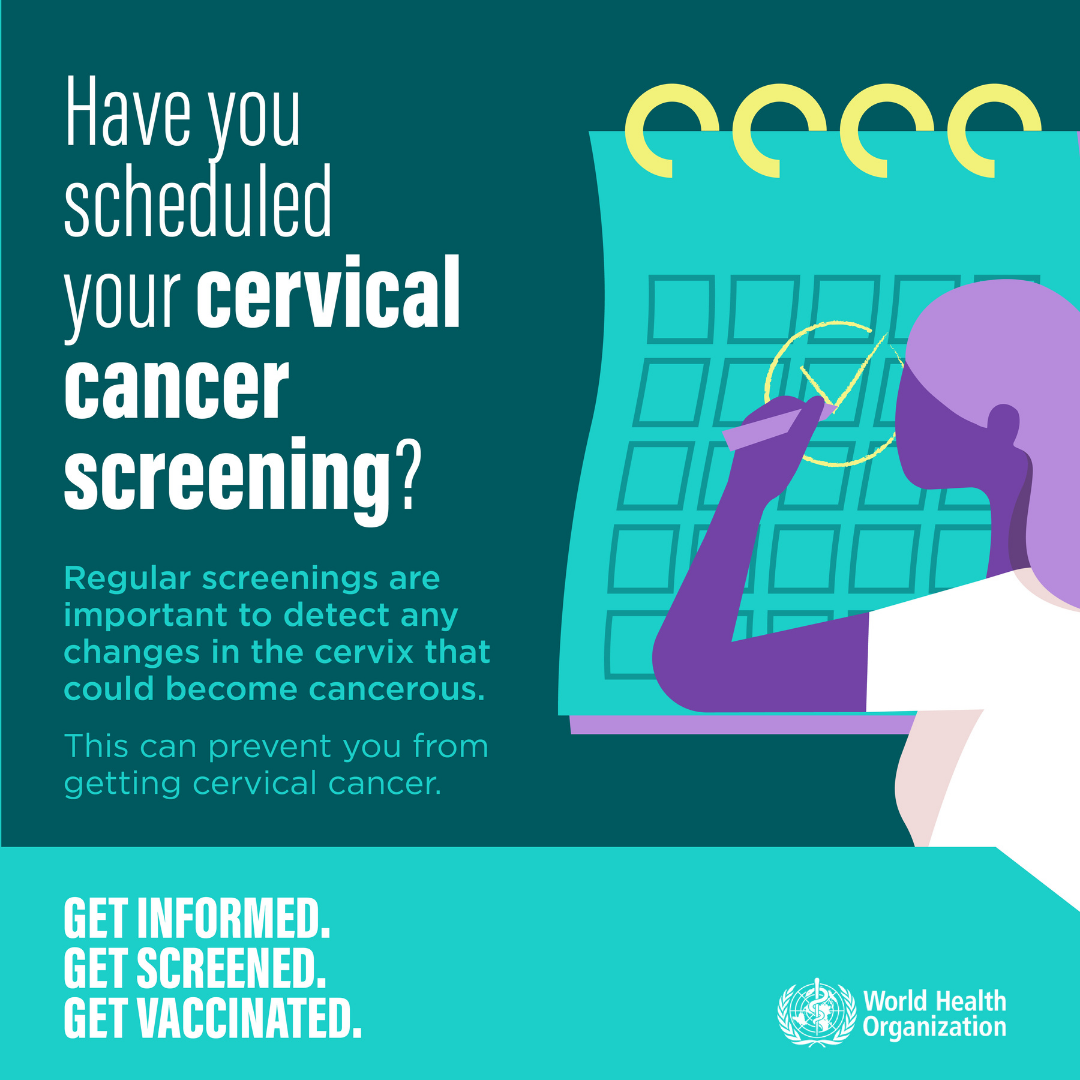January is Cervical Cancer Awareness Month, an ideal chance for WHO and partners to raise awareness of cervical cancer and vaccination against human papillomavirus (HPV), the main cause of cervical cancer. Together, we can strive to end cervical cancer within a few generations.
This year, Cervical Cancer Awareness Month aims to highlight the importance of increasing access to HPV vaccines, regular screening, and state-of-the-art treatment for cervical cancer in its early stages. Our shared objective is to dramatically reduce the occurrence of cervical cancer by 2030 and to eliminate the disease as a public health problem by 2120.
Cervical cancer is the sixth most common cancer in women in the WHO Eastern Mediterranean Region. In 2020, an estimated 89 800 women were diagnosed with cervical cancer in the Region and more than 47 500 women died from the disease.
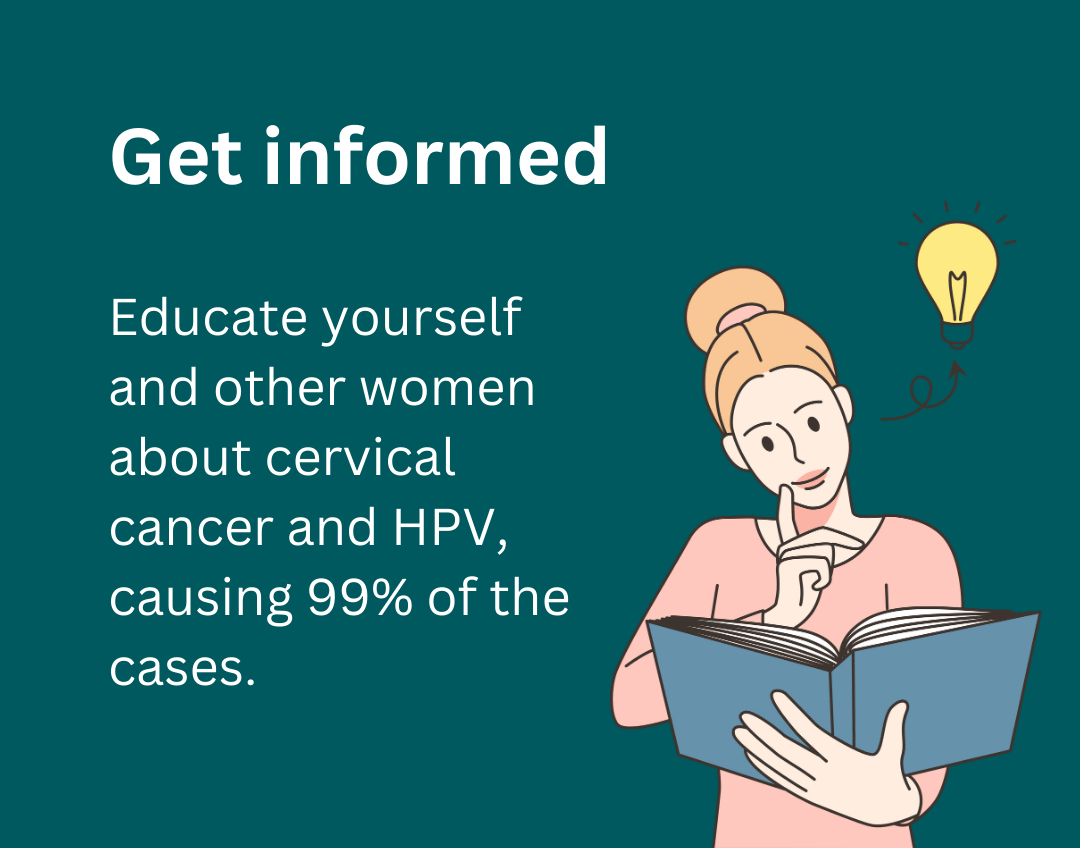
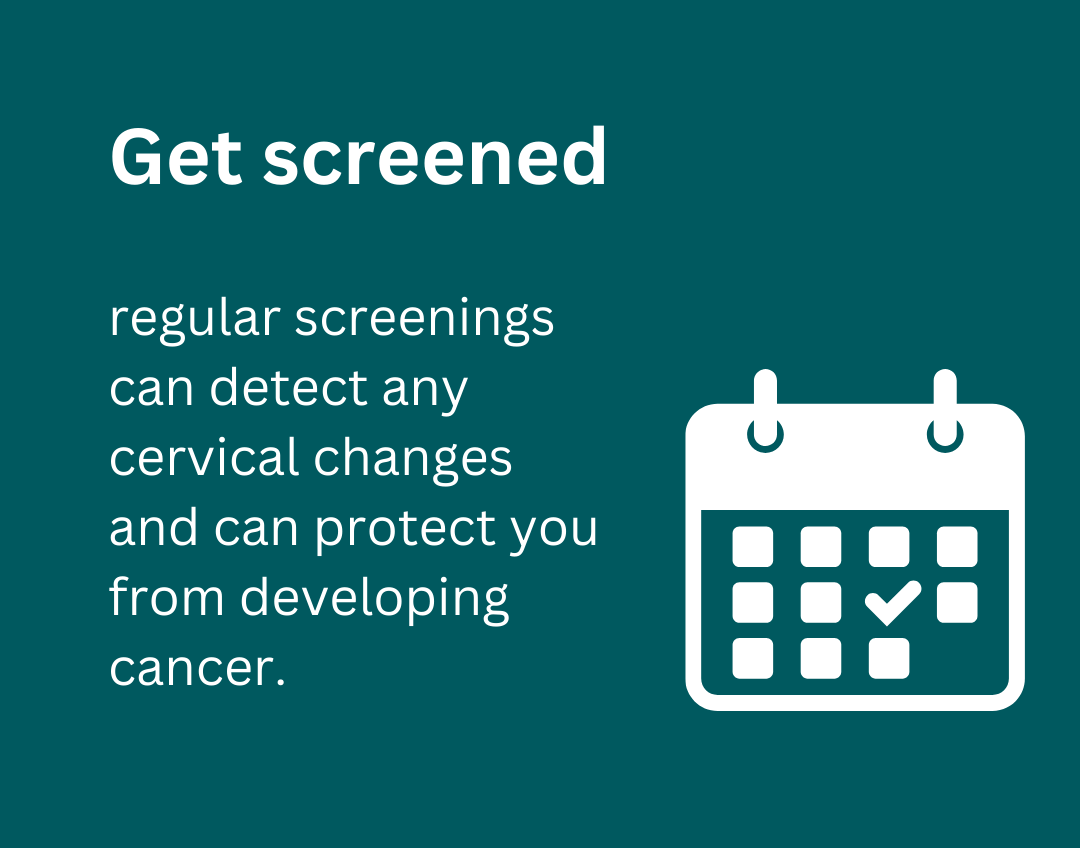
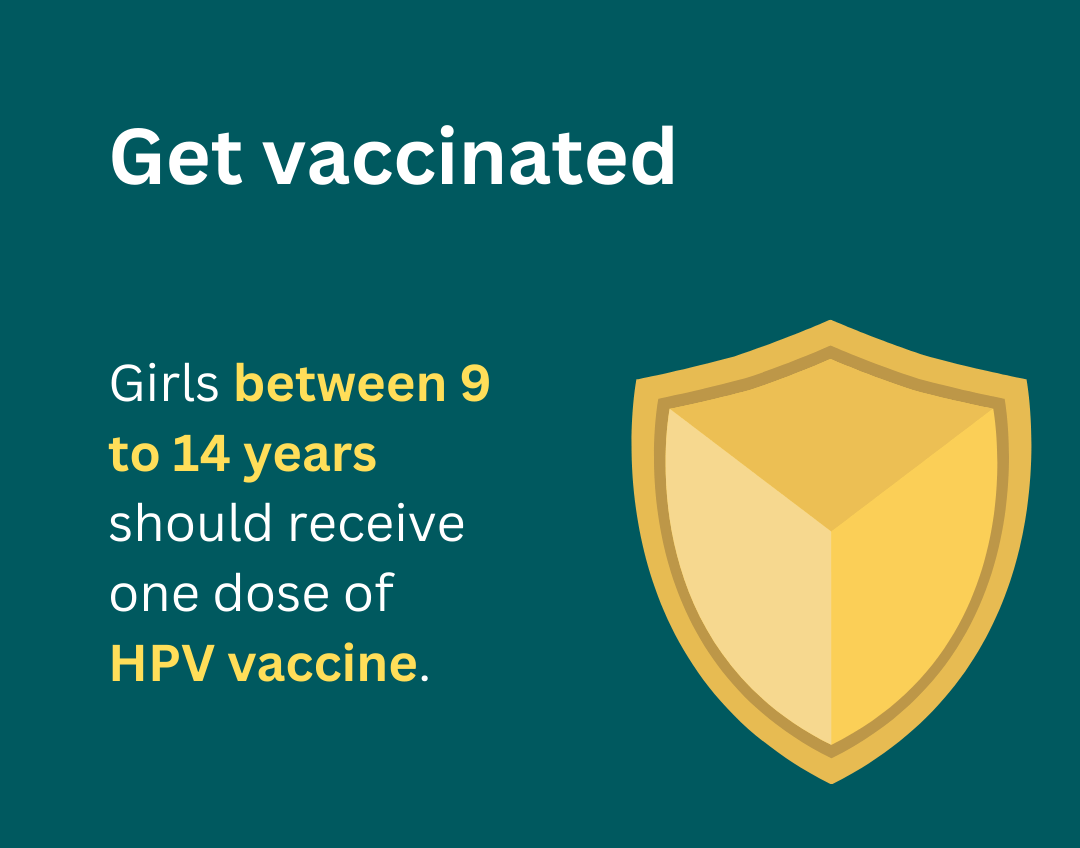
When diagnosed early and managed effectively, cervical cancer is one of the most successfully treatable forms of cancer. But caught too late, the outcomes are not nearly as good.
The good news is that cervical cancer can be easily prevented through vaccination against HPV and regular screening.
To all girls and women, the messages of Cervical Cancer Awareness Month are clear:

Get informed. Find out the facts about HPV and cervical cancer, including what signs to look out for. Help educate other women in your life too.

Get screened. Cervical cancer screening typically starts at 30 years of age and is repeated regularly.

Get vaccinated. The HPV vaccine is given in 1 or 2 doses that should begin when a girl is aged 9–14 years.
Know more about cervical cancer
Cervical cancer develops in a woman’s cervix, the lower part of the uterus or womb, which opens into the vagina. Virtually all cervical cancer cases (99%) are caused by the human papillomavirus (HPV), an extremely common virus that is spread through skin-to-skin contact.
Most HPV infections are cleared by the immune system and cause no symptoms. But in some cases, infection can persist and lead to cervical cancer developing. Typically, it takes 15–20 years for an infected cervix to develop cancer, but sometimes the process can be faster and take 5–10 years.
Cervical cancer can be easily prevented through vaccination against HPV and regular screening.
Cervical cancer is the sixth most common cancer in women in the WHO Eastern Mediterranean Region. In 2020, an estimated 89 800 women were diagnosed with cervical cancer in the Region and more than 47 500 women died from the disease.
When diagnosed early and managed effectively, cervical cancer is one of the most successfully treatable forms of cancer. But caught too late, the outcomes are not nearly as good. Cancers diagnosed at a late stage can be controlled with appropriate treatment and palliative care.
Through prevention, screening and treatment, we can end cervical cancer as a public health problem within a few generations.
Know the symptoms of cervical cancer
See a doctor straight away if you experience:
irregular bleeding between periods, after the menopause or after sexual intercourse
increased or foul-smelling vaginal discharge
persistent pain in the back, legs or pelvis
weight loss, fatigue and loss of appetite
vaginal discomfort
swelling of legs.
Cervical cancer in its early stages may present no symptoms. This is why regular cervical cancer screening is important, even if vaccinated against HPV.
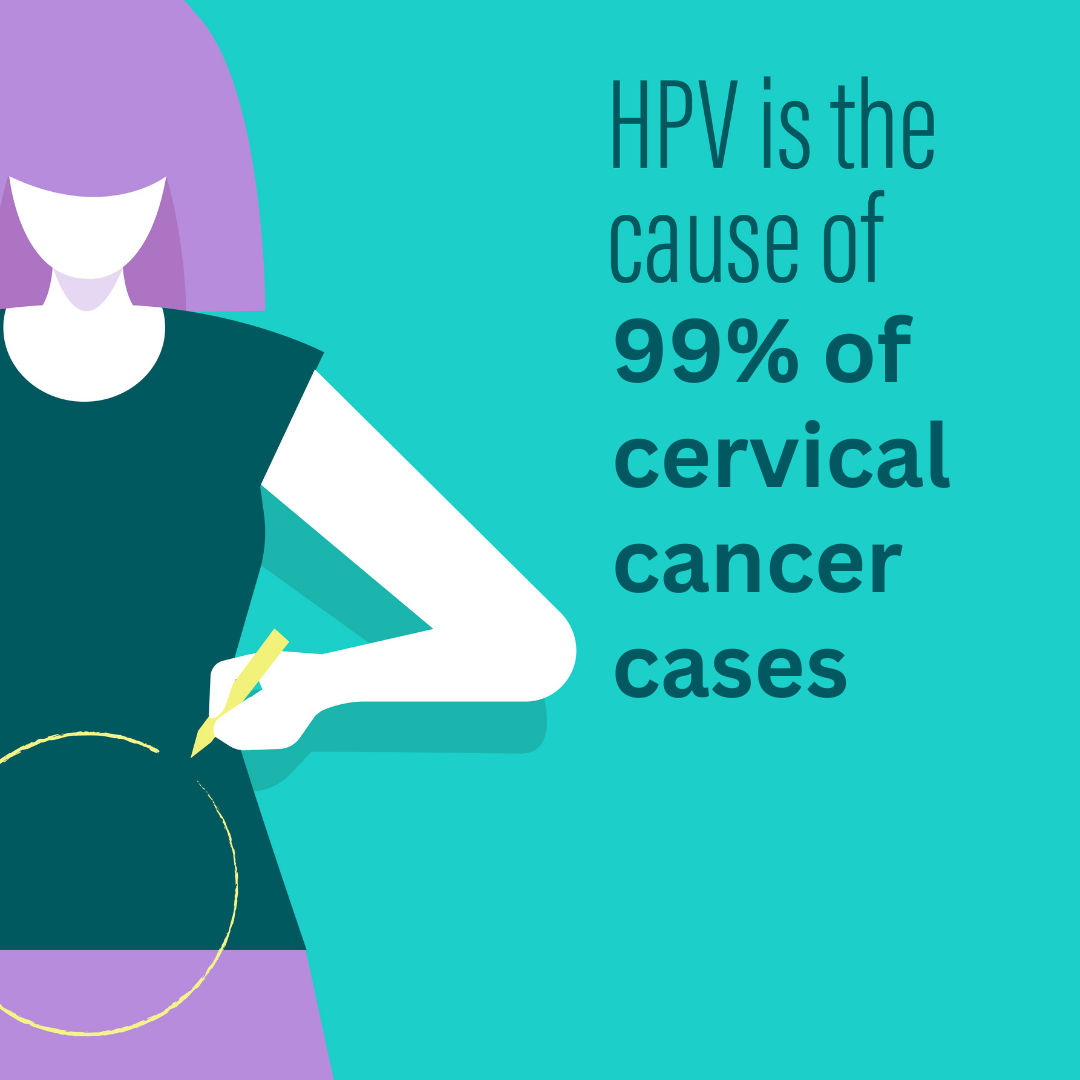
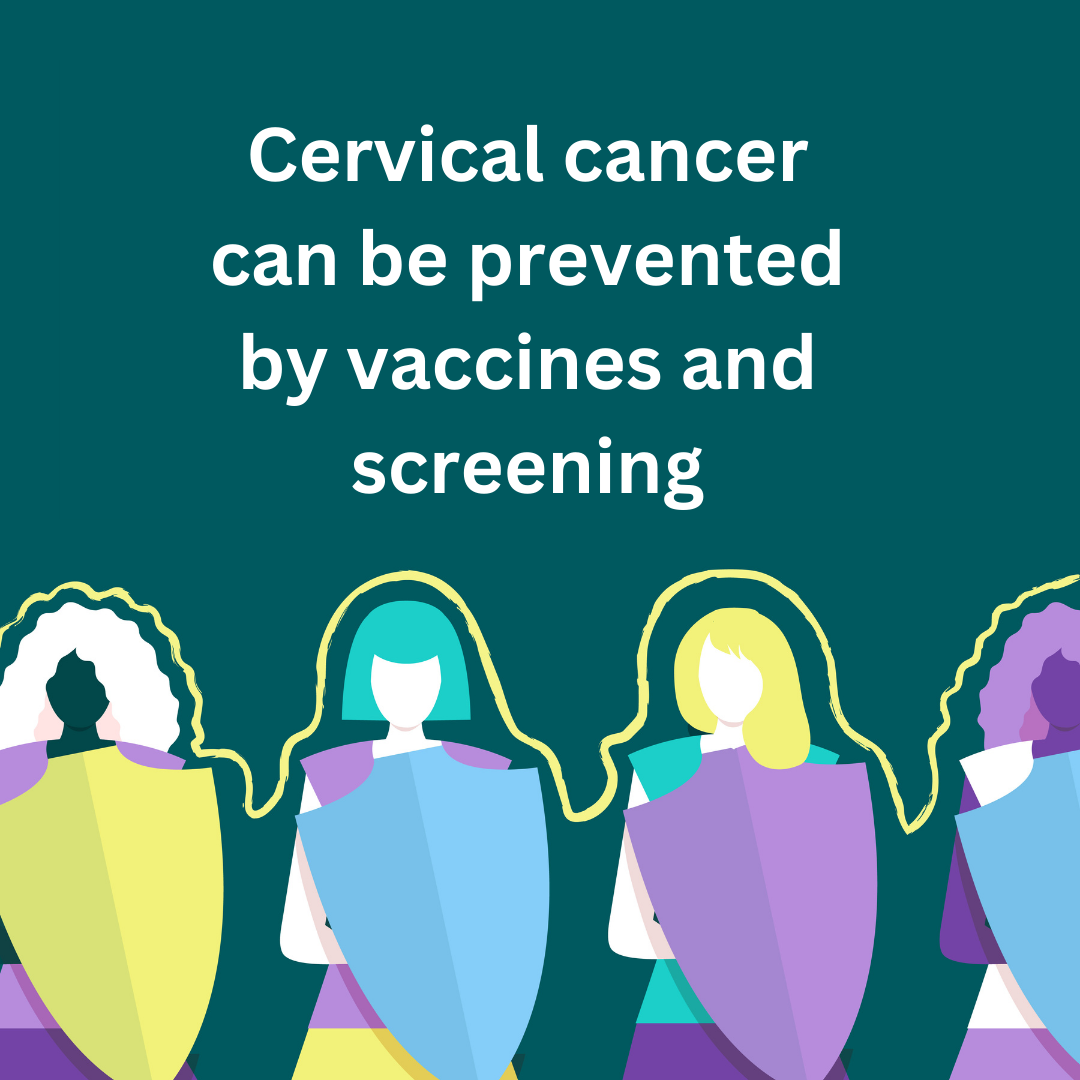
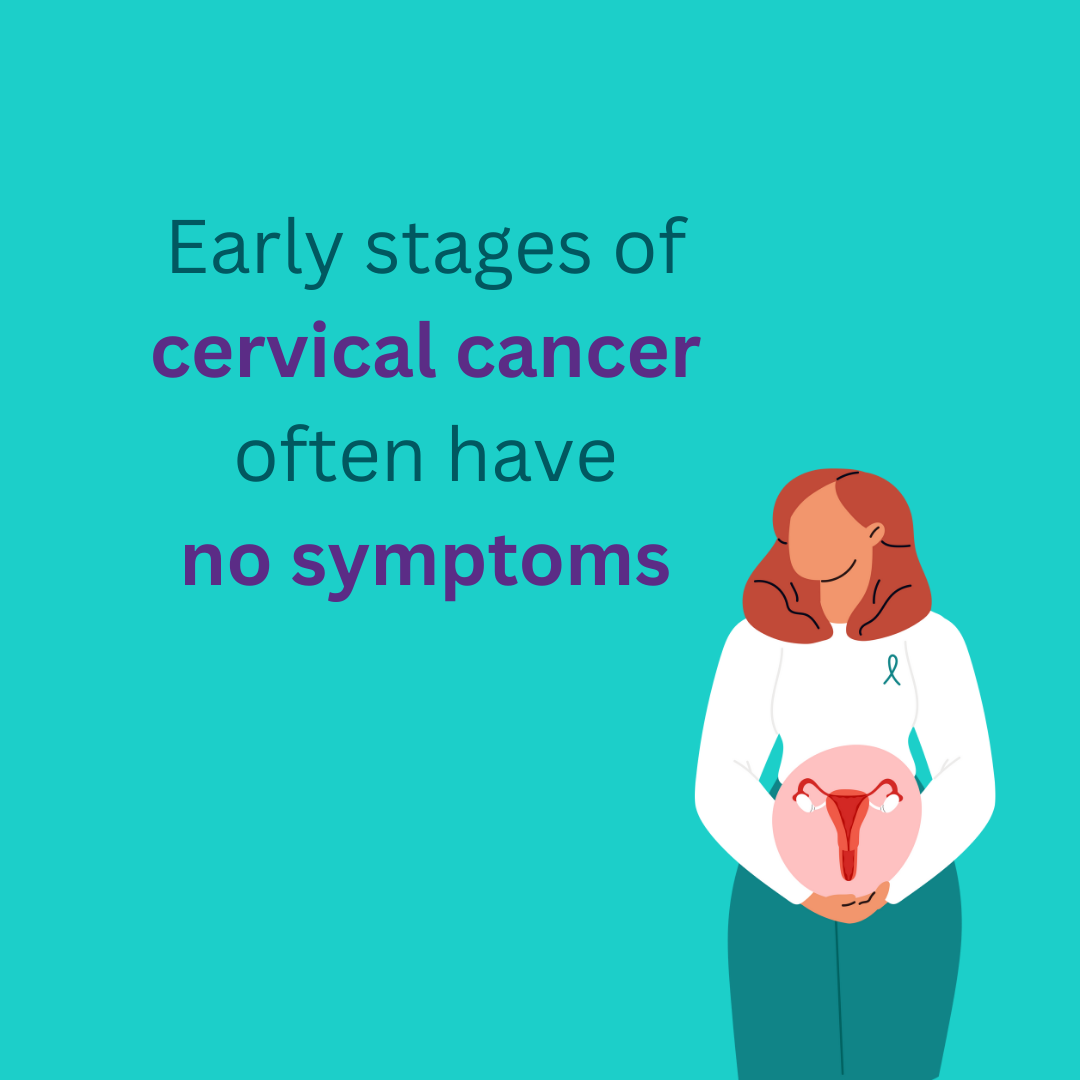
Prevention and treatment of cervical cancer
All girls aged 9–14 years should be vaccinated against HPV. This protects against HPV infection, which can lead to the development of cervical cancer and other HPV-related cancers. HPV vaccines are safe and are given to young girls in a single dose.
Timely screening is essential. If cervical cancer is detected early, it is highly treatable. It is important to have regular screening from the age of 30 years to check for HPV, which can cause cervical cancer. Women who test negative for HPV should get screened again every 5 to 10 years.
Women living with HIV should be screened for HPV every 3 years from the 25 years of age. The global strategy promotes a minimum of 2 lifetime screenings, with a high-performance HPV test by 35 years of age and another by 45 years of age.
